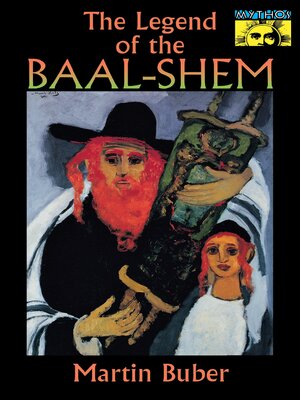The Legend of the Baal-Shem
ebook ∣ Mythos: the Princeton/Bollingen Series in World Mythology
By Martin Buber

Sign up to save your library
With an OverDrive account, you can save your favorite libraries for at-a-glance information about availability. Find out more about OverDrive accounts.
Find this title in Libby, the library reading app by OverDrive.



Search for a digital library with this title
Title found at these libraries:
| Library Name | Distance |
|---|---|
| Loading... |
The Jewish philosopher Martin Buber spoke directly to the most profound human concerns in all his works, including his discussions of Hasidism, a mystical-religious movement founded in Eastern Europe by Israel ben Eliezer, called the Baal-Shem (the Master of God's Name). Living in the first part of the eighteenth century in Podolia and Wolhynia, the Baal-Shem braved scorn and rejection from the rabbinical establishment and attracted followers from among the common people, the poor, and the mystically inclined. Here Buber offers a sensitive and intuitive account of Hasidism, followed by twenty stories about the life of the Baal-Shem. This book is the earliest and one of the most delightful of Buber's seven volumes on Hasidism and can be read not only as a collection of myth but as a key to understanding the central theme of Buber's thought: the I-Thou, or dialogical, relationship.
"All positive religion rests on an enormous simplification of the manifold and wildly engulfing forces that invade us: it is the subduing of the fullness of existence. All myth, in contrast, is the expression of the fullness of existence, its image, its sign; it drinks incessantly from the gushing fountains of life."—Martin Buber, from the introduction







